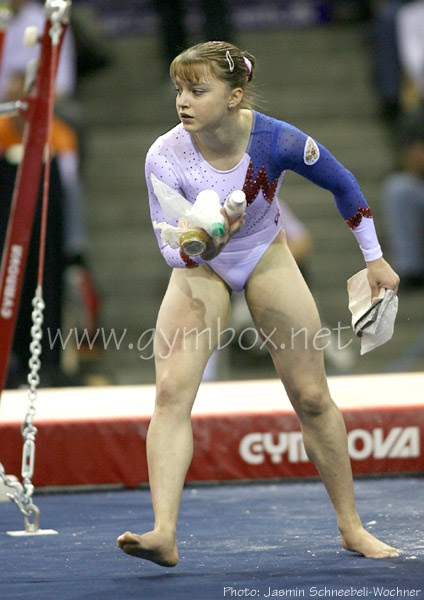from Romanian Gymnastics Blog
For a long time now, Nicolae Forminte has been doing in Deva what he calls ”lab work”. He says he didn’t count the medals won by his gymnasts, but quickly adds that “there were people who started to count them” and there seem to be tens of them. He believes that the general public doesn’t know the real problems that Romanian gymnastics is facing and reminds us of the huge efforts done by those involved in the sport for exceptional results.
We live under the terror of comparisons
“I am here 24 hours of 24 and I go home, to Constanta, once in a month and a half, in week-ends. But, in addition to the 6-7 hours of daily training at the gym with the girls, there is always something to be done. Even if I just stay and look at the Fortress’ Hill, I cannot stop thinking about a training plan, which girls have health issues, with whom I should replace them in case something goes wrong.” He’s doing this job of great responsability for a similar salary of any other sports teacher and believes that one of the reasons gymnastics is going through a period of crisis is that coaches aren’t motivated in Romania. “Everybody is used to expect results from the gymnasts and, to most people, this sport is like “the hen with the golden eggs”, but almost nobody knows the deep changes and obstacles that the National team’s staff is facing day by day. We live under the terror of comparisons and we have to put up with any problem that comes along; in what concerns the money I survived by using my own saving.”
The selection is sublime, but entirely missing
According to Forminte, the interest for gymnastics is much smaller, because the children of today have a variety of alternatives. “The generations that we coached starting with 2005 are the generations of children who were born free, after the Revolution, and there have been some drastical changes in the mentality of people. Perhaps the biological material has changed, too. We don’t have the same pool of athletes anymore, but again, the coaches are poorly paid, there is basically no selection in schools anymore, and without permanently descovering new athletes, there is no future,” continued the head coach of the women’s gymnastics national team. To be able to collect the necessary funds, he often used his own relations that sponsored the team out of admiration, but this is not the solution, he adds, and he is convinced that the Romanian state should have fiscal policies to support those who choose to invest into a sport.
What does the Romanian school of gymnastics need?
"We need a national strategy to develop physical education, an inventory of both human and financial resources. It is vital that the specialists are motivated, otherwise the risk is that we may one day have gym clubs with all the necessary equipment, but empty - because no one is willing to voluntarily make such sacrifices."
What is the secret of a successful coach?
"Work. Health. And a bit of chance. As a coach, all you can do is to bring the gymnast as close as possible to the medals, but once in competition, everything can change in a blink of an eye. An athlete can perform a zillion of perfect routines at the training gym and it can simply happen that she makes one mistake. In competition."
How is Romania perceived at competitions?
“Look at them! Still around, they wouldn’t die!” In the past, Romania was received with sympathy by the Western world because we counterbalanced the U.S.S.R power, now everybody is looking in admiration to the newcomers: Australia, Japan, Swiss, France. Add to this the loss of our position at the International Federation, and you can get robbed right away, without any shame whatsoever."
Dislikes:
“Stupidity and superficiality, everything done in a bombastic way, the “laissez-faire” way of working (let do, we’ll see later about this…). I hate to beg and that’s why I’ve always been like at war, fighting everybody. I’d rather live poor.”
Likes:
“I don’t regret anything that I have done, or the things that I haven’t. This has been my life so far. I love my job, I would have given up long ago if I didn't, like so many teachers before me, or I would have left the country.”
Tuesday, April 28, 2009
Subscribe to:
Post Comments (Atom)





Hey, thanks a lot!
ReplyDelete